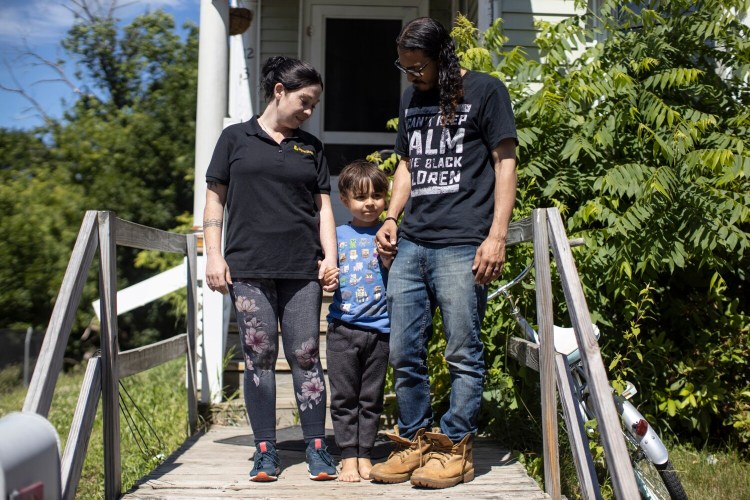A frustrating feature of the way our government works – or doesn’t work – is the obscure way legislation moves through Congress.
Instead of individual bills that are debated on their own merits, improved by amendment and put up for a vote, many different ideas are bound together in packages so complex they can’t be easily understood by the public.
A prime example is what’s being alternately called the Build Back Better Act or the $3.5 trillion reconciliation bill, two titles that tell us nothing about what this package would do for the country.
Last Sunday, we wrote in support of the bill’s provisions to create incentives for producing clean electric power, which we called Congress’ “last best chance for meaningful climate action.”
This week, we write in support of another of the bill’s provisions – the extension of a fully refundable child tax credit, which is scheduled to expire at the end of this year. Like the Clean Electricity Performance Plan, the child tax credit extension would prevent a catastrophe in the near term while investing in a better future for millions of people.
The child tax credit has been in the tax code for decades, but it wasn’t fully deployed until this year, when it was expanded by the last COVID rescue bill: the American Rescue Plan Act, which became law in March.
The credit was increased from $2,000 to $3,000 per child, with an additional $600 for children younger than age 6.
The full credit is available to families with incomes of up to $150,000 for couples and $112,000 for single parents, covering almost 90 percent of families. And it is fully refundable, meaning that the credit is not only applied to reduce the bill for taxes owed, but also is paid out in full, even to families who don’t owe any taxes.
Starting in July, families began receiving their tax credit in monthly installments, easing the burden on low-income, working and middle-class families. The payments helped pay rent, buy groceries and cover child care, enabling parents to go back to work.
The effect has been dramatic. The child tax credit is projected to cut child poverty nearly in half. It also results in new household spending, creating jobs and generating sales tax collections. But if it’s not extended, it will disappear at the end of the year.
The program is expensive: It cost $120 billion this year, but the proposed extension wouldn’t add to the deficit. It would be funded with a partial rollback of reductions in corporate tax rates, which were slashed in 2017.
This is a matter of economic justice. Extending the child tax credit program is a long-overdue recognition of the struggle families face even in a strong economy.
Wages for working families have been stagnant for decades, while corporate profits have exploded, even during the pandemic. These gains, and those of the richest individuals, have not resulted in better jobs and opportunities for struggling families.
A childhood in or near poverty can be a lifetime burden. Growing up with unstable housing, food insecurity and economic stress interfere with a child’s ability to learn and can contribute to mental health and substance use problems later in life. Dropping corporate profits closer to 2017 levels is not too much to pay.
Congress is racing toward a number of terrifying deadlines this month. In addition to the budget reconciliation bill and a bipartisan infrastructure bill that is scheduled for a vote in the House this week, we are also facing a government shutdown and default on our debts without swift bipartisan action in Congress.
With so many short-term crises, it would be easy for people to lose sight of long-range problems that need our attention now.
Climate change is one of those crises. The security of struggling families is another.
The legislative process may be opaque, but the importance of programs like these could not be more clear.
Send questions/comments to the editors.


